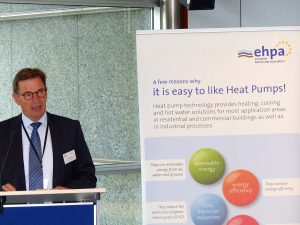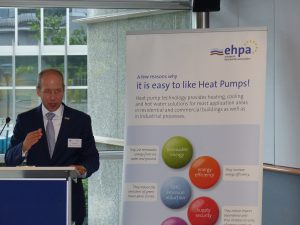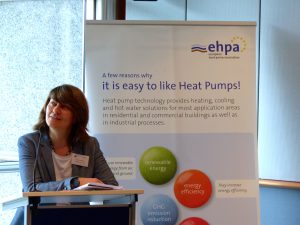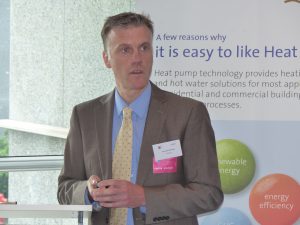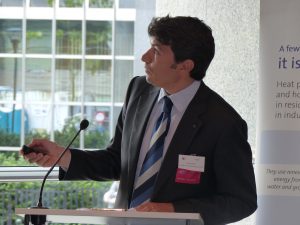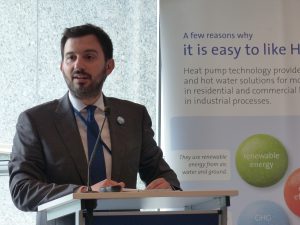The Human Dimension of Energy Efficiency in Buildings
On 14th of June, SME Europe in cooperation with the European Heat Pump Association as well as the European Building Automation Controls Association (EU.BAC.) held a Working Breakfast on The Human Dimension of Energy Efficiency in Buildings. President of SME Europe Bendt Bendtsen MEP, welcomed the guest by emphasizing the importance of the issue at hand. He outlined that it is crucial to listen closely to the consumers as there was now the opportunity to generate untapped potential in the field of energy efficiency.
Thomas Novak, Secretary General of the European Heat Pump Association, identified price as the key factor within the chain of decisions to be made by consumers. The Commission as well as other Member states should therefore learn from successful countries such as Denmark. Moreover, Mr. Novak stated that smart grids where another source holding substantial benefits. Additionally, installers must be seen as gatekeepers and SMEs as the Keys in the further development of the sector.
Claudia Canevari, Deputy Head of the Unit Energy Efficiency, provided a general presentation of the Commission´s work on the subject. She emphasized the importance of the Security of Supply Package as well as the Strategy for Heating and Cooling I&II as these can contribute to an overall reduction of energy. Furthermore, Ms. Canevari identified wasted heat as well as wasted cold as areas of issues especially in the context of buildings.
Steven Worrall from EON focused on influencing consumer purchasing decision in favor of low cabon heat. He outlined that a consumer pull was necessary in order to generate demand. Mr. Worrall presented three elements to achieve this pull, benefit, communication and emotional engagement. He emphasized that by stimulating these relevant factors consumer purchasing will significantly increase.
Luca Gorno, Daikin Italy, outlined the lack in information which could be tackled with a communication campaign. Moreover, he stated that the general approach towards the topic needed a change in dictionary meaning that costs must be understood as investments. Finally, practice management must be supported with extensive special training such in the case of Daikin Italy where installers has now become 360 consultants.
Riccardo Viaggi, from the European Builders Confederation EBC, stated that the building sector generated 9% of EU GDP through mostly SMEs with less than 10 employees. Moreover, although the crisis has been ongoing in the sector there is potential to generate substantial business. However, it is crucial that now a day’s traders work together as building have become interconnected habitats.
The Working Breakfast was concluded by a brief discussion and general closing remarks by MEP Bendtsen.

